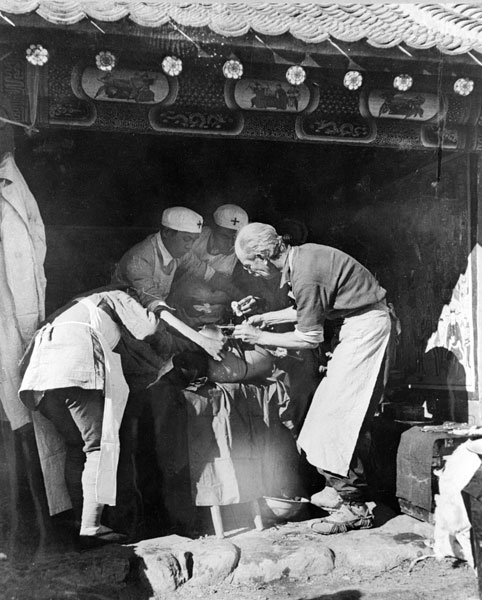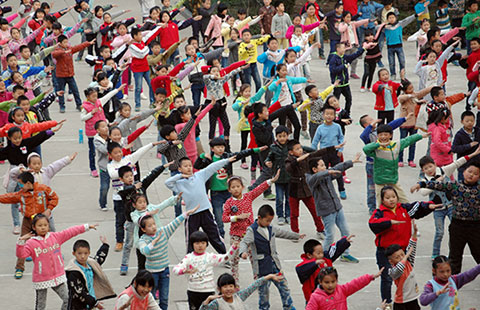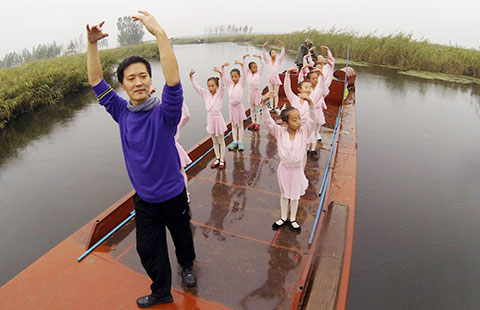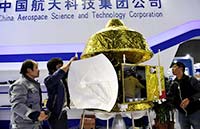Healing old wounds in a medical melting pot
By Zhang Yu and Pei Pei (China Daily) Updated: 2015-06-12 07:31
|
Norman Bethune performs surgery on a wounded soldier at Laiyuan in the Shanxi-Chahar-Hebei border area. He also helped to expand a small field hospital founded by the Eighth Route Army. Xinhua |
Bethune's period of activity was short-lived, however. In 1939, he contracted a skin infection from a wounded soldier and died of septicemia a short time later in Tangxian county, Hebei. In 1940, the Model Hospital was renamed The Bethune International Peace Hospital to commemorate the Canadian as a great internationalist.
The hospital records show that more than 11 million wounded soldiers were treated during the eight years of war, and 1,500 doctors were trained at the establishment.
"The duty of a doctor is to help patients in their fight back to health and strength." That quote from Bethune is displayed on the walls at the Bethune Memorial House, which was opened in 1975 and stands in the grounds of the hospital. Those words often inspired Liu, who always tried to provide his patients with the best possible treatment.
"I survived the war, and I know how Bethune fought to save our wounded soldiers." he said, adding that he and many of his colleagues revere Bethune's memory and have devoted themselves to passing his teachings onto the younger generation.
Now 85, Liu spent 50 years treating patients with eye conditions and has helped tens of thousands to regain their sight. Although he officially retired in 1994, he regularly visits local hospitals in Hebei as a volunteer to train young ophthalmologists. This year he made an emotional return to the Peace Hospital, where he treated patients but didn't charge them or the hospital for his services.
"Sometimes I even apply to the hospital on behalf of my patients so they can enjoy free treatment. Some are too poor to cover the medical expenses, and I am always sad when I discover that people have been forced to sell their belongings to pay for treatment," he said.
According to one of his former colleagues, Liu once explained that the ophthalmic department charged the lowest fees in the hospital, not because it received fewer patients, but because the team had adhered to his dictum of saving the patients' money whenever possible. The staff remember how the veteran physician once told his colleagues: "If you can charge 1 yuan, don't charge 2 or more; if you can treat patients without charging, then just do your doctor's duty for free."
Following in Bethune's footsteps, the hospital treats patients free of charge, and in 2012 it initiated a program of annual free visits to war veterans and cash-strapped rural residents.
At the end of May, the hospital cooperated with a team of Canadian ophthalmologists to provide free eye examinations for residents of the areas around the old revolutionary base. In 1974, it became the first PLA hospital to admit foreigners, and since then nearly 30,000 people from more than 80 countries have visited the hospital and the memorial house. At present, the hospital boasts more than 2,000 beds, provides more than 1.05 million outpatient consultations, and treats 51,000 inpatients every year.
Hospital official Liu Huibin praised the commitment of the medical staff throughout the hospital's history: "The wartime Bethune has left us, but we now have many Bethunes at the hospital. Liu Shiyue is typical of the type. His loyalty and dedication to the patients always impressed his colleagues."
For Liu Shiyue, the virtues upon which the hospital was founded will live forever: "The soul of Norman Bethune will never die because it lives in every generation of medical workers at the hospital he helped to found."
Contact the writer at zhangyu1@chinadaily.com.cn
- China to speed up restructuring of zombie SOEs
- Singapore plays positive role in ties between mainland and Taiwan
- Success of Fox Hunt campaign continues
- SOE changes aim to improve efficiency
- Major farm reform on the horizon
- Deadline set for hukou revisions
- Tibetans weave faith into music
- Xi-Ma meet to lead cross-Strait high-level exchanges
- English skills slip in China: survey
- Xi to meet Taiwan leader in Singapore








